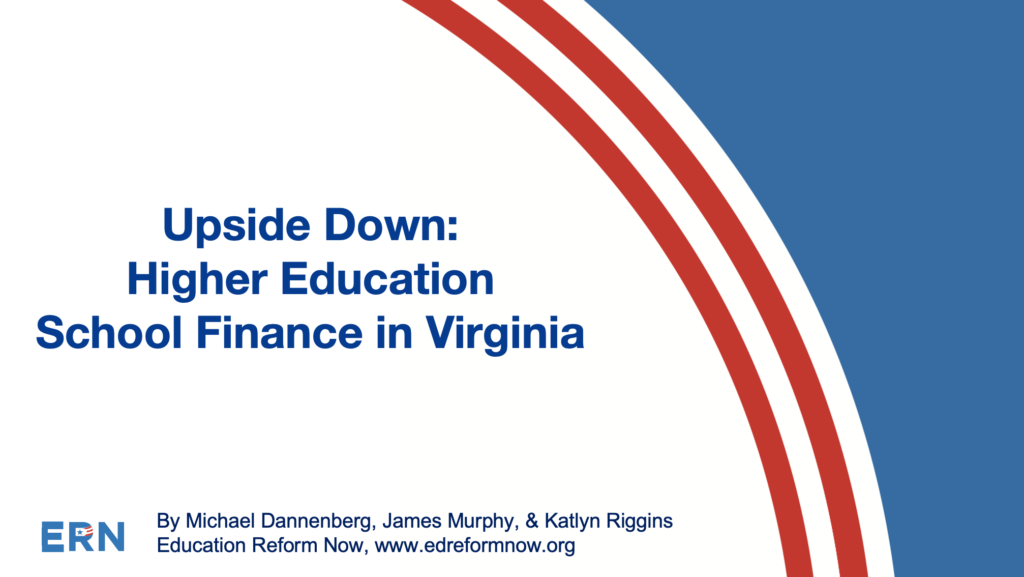Didn’t get a chance to read our latest report on Virginia’s “separate and unequal” public higher education system? Here’s a handy PowerPoint summary of that report that focuses on the unequal portion.
A summary of our first report that focuses on Virginia’s de facto segregated higher ed system can be read here.
After viewing the details of our latest, ask yourself the following:
If a state like Virginia maintains a “separate and unequal” public higher education system, will Congress do anything about it via the coming mammoth Higher Education Reconciliation bill that will provide states and colleges well over $100 billion?
Will Congress temper its potential ambition and address only half of the “separate and unequal” challenge? (Guess which is easier?) Or will the federal government mainly just double-down on existing college access programs like the Pell Grant? (Easier still.)
The best course to follow – the one that is most just and most likely to be successful for the most students — is a leveraged federal-state partnership that:
(1) guarantees working class and low-income students they can attend any quality two or four-year public college to which they’re admitted, debt-free, rather than be channeled into a cheaper, but not always the best fit, school for them;
(2) pushes states like Virginia to redress higher ed school finance inequities and fund public colleges transparently and fairly, rather than behind closed doors;
(3) incorporates a college completion fund that invests in high school academic preparation for college and related partnerships among high schools, colleges, and community-based organizations like College Track that boost not just college access and affordability, but actual degree completion; and critically,
(4) holds college leaders accountable for results, instead of providing more resources for more of the same.
Similar colleges with similar students generate wildly different results. Institutions like the University of Washington and UNC-Chapel Hill that are getting the job done on college access and those like Georgia State and Cal State Fullerton that do the same on degree completion should be rewarded. College leaders at Virginia’s Christopher Newport University, the University of Virginia, and William & Mary, schools that rank among the bottom 10 public colleges in the entire country on college access, as well as leaders at places like Michigan State, which produces indefensible gaps in Black-White student graduation rates as compared to peer institutions, should be held accountable.
Colleges and states need to be pushed to do better.
The fact is we have a separate, unequal, unaffordable, and sub-optimally effective public higher education system. Ideally, Congress will address all four of those challenges in the coming Higher Education Reconciliation bill.
Chances are Congress will focus on the last two challenges. That’s good. In fact, it could be great.
But there’s still so much more to do.
# # #
